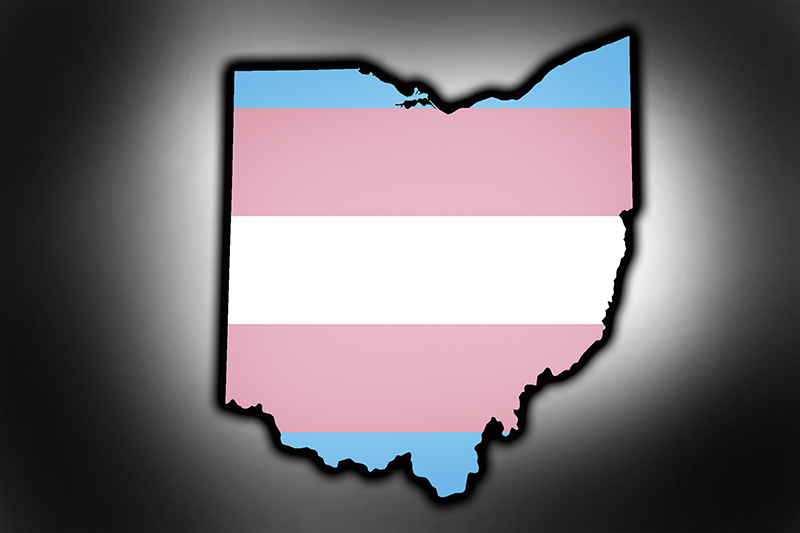Court orders Idaho to issue accurate birth certificates to transgender residents
State policy had previously banned any amendments to birth certificates, even if a person had undergone surgery

A federal judge has ordered Idaho state officials to allow transgender people born in Idaho to change the gender markers on their birth certificates by April 6 if they request such a change.
Lambda Legal filed a lawsuit last April challenging Idaho’s categorical ban on gender marker changes on behalf of F.V. and Dani Martin, two transgender women who are native-born Idahoans and wish to change their birth certificates to better reflect their names and gender identities.
F.V., a resident of Hawaii, and Martin, who lives in Idaho, have argued that the state’s refusal to amend birth certificates — even if transgender people have successfully transitioned and undergone gender confirmation surgery, which would meet other state’s requirements for a gender marker or name change — is unconstitutional.
Lawyers for the two women argued that denying transgender Idahoans the ability to obtain accurate birth certificates discriminates against them and invades their privacy, liberty, and freedom from compelled speech (in this case, having to be identified on identification documents by a gender with which they do not personally identify) under the U.S. Constitution.
In one instance, after F.V. displayed her birth certificate at a social security office, the employee referred to her as a “tranny,” and someone who overheard the comment called her a “faggot.” Martin was similarly forced to argue with a DMV employee that she was a woman, despite what gender was listed on her birth certificate.
Writing for the court, U.S. Magistrate Judge Candy Dale said that the state must allow transgender people to amend their birth certificates if they request it.
“Plaintiffs have sufficiently demonstrated that they have suffered irreparable injury and harm that cannot be remedied by ordinary remedies at law — and by Defendants’ acknowledgment, [the Idaho Department of Health and Welfare] cannot proceed to create a new rule to remedy the harm without a court order,” Dale wrote.
“Furthermore, the balance of the hardships warrants an equitable remedy, because allowing such amendments would pose no new burden on Defendants: Idaho vital statistics laws allow IDHW to create and implement a constitutionally-sound rule, and IDHW already has in place processes and procedures to facilitate the amendment of birth certificates in the ordinary course of its everyday activities.
“Finally, the public interest is not disserved by a permanent injunction,” Dale concluded. “A rule providing an avenue to obtain a birth certificate with a listed sex that aligns with an individual’s gender identity promotes the health, well-being, and safety of transgender people without impacting the rights of others.”
Lambda Legal praised the court’s decision, which ordered the state to adopt a new policy that allows transgender people to obtain gender and name changes on their birth certificates, though what form that policy will take remains unclear.
“Idaho’s policy was not only archaic and out-of-step with the rest of America but also dangerous,” Kara Ingelhart, a Lambda Legal Law Fellow, said in a statement. “Early in this lawsuit, state officials recognized that their current policy was indefensible. Forcing transgender Idahoans to go through life with inaccurate birth certificates, a basic form of identification, unnecessarily exposed them to discrimination, harassment, and violence.”
Peter Renn, a senior attorney with Lambda Legal, says that any final rules put in place by the Idaho Department of Health and Welfare must eventually be approved by the legislature. But he says the court has made clear that the policy must meet the minimum constitutional standards outlined by the court.
“There is clearly no basis for having transgender people jump through hoops in order to obtain an accurate birth certificate,” Renn told Metro Weekly. “The state cannot erect unconstitutional roadblocks that prevent transgender people from getting the identity documents they need.”
If the legislature does decide to adopt a policy that is hostile to transgender people or continues to make it difficult for them to change their gender markers or names, such as requiring a court order and gender confirmation surgery — both of which can take a financial toll on transgender people — the court would likely declare it unconstitutional.
“Those type of onerous, burdensome requirements are not likely to withstand scrutiny,” Renn said. “The reason why this court was so clear in saying discrimination against trans people has to meet stringent tests if it’s going to survive was that it wants to be clear about the rules in which the government has to operate. That’s why we’re closely monitoring the situation to ensure the state recognizes transgender people’s constitutional rights, and are ready to spring into action if it doesn’t.”
Support Metro Weekly’s Journalism
These are challenging times for news organizations. And yet it’s crucial we stay active and provide vital resources and information to both our local readers and the world. So won’t you please take a moment and consider supporting Metro Weekly with a membership? For as little as $5 a month, you can help ensure Metro Weekly magazine and MetroWeekly.com remain free, viable resources as we provide the best, most diverse, culturally-resonant LGBTQ coverage in both the D.C. region and around the world. Memberships come with exclusive perks and discounts, your own personal digital delivery of each week’s magazine (and an archive), access to our Member's Lounge when it launches this fall, and exclusive members-only items like Metro Weekly Membership Mugs and Tote Bags! Check out all our membership levels here and please join us today!























You must be logged in to post a comment.